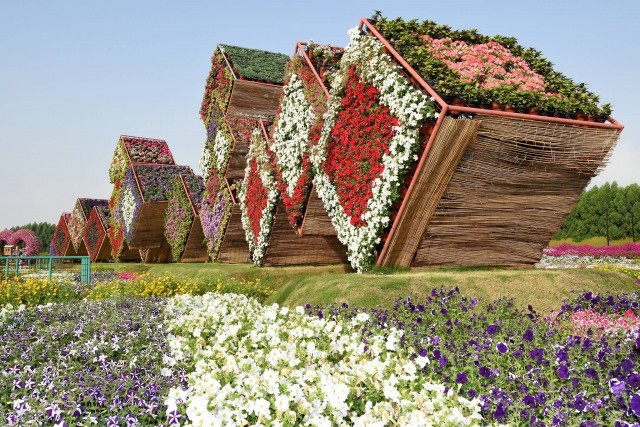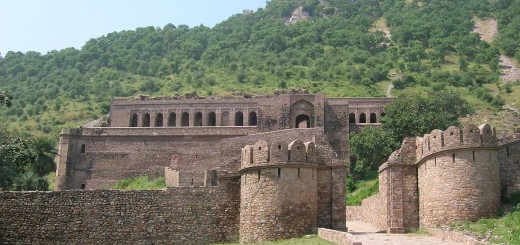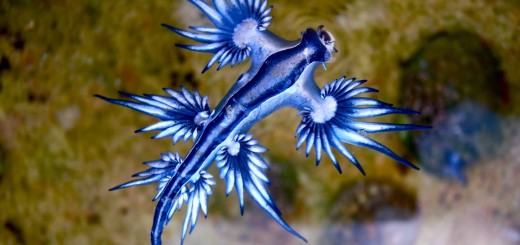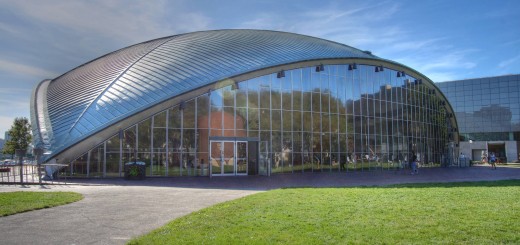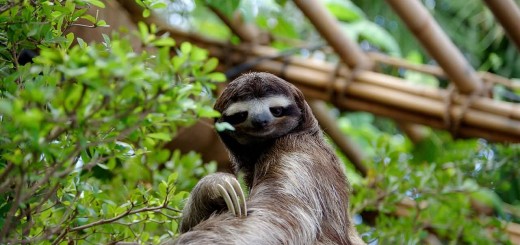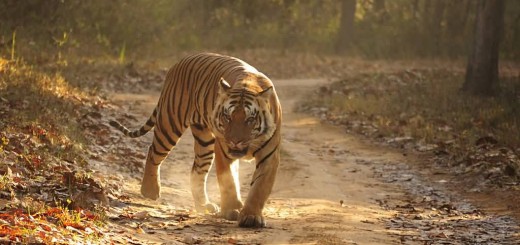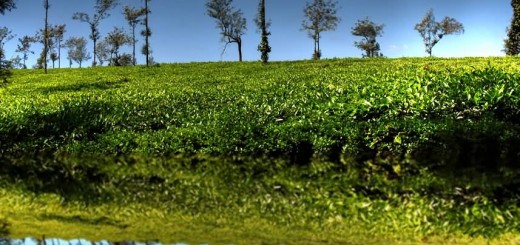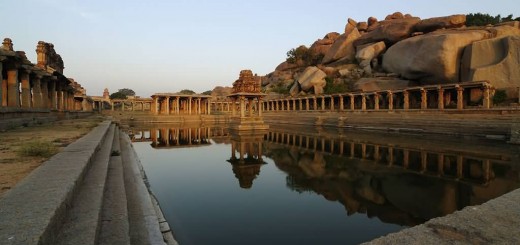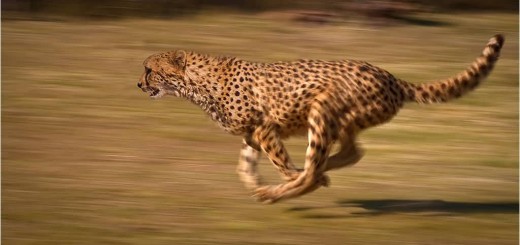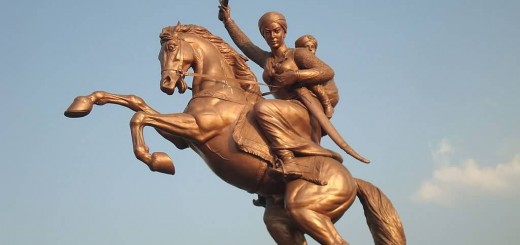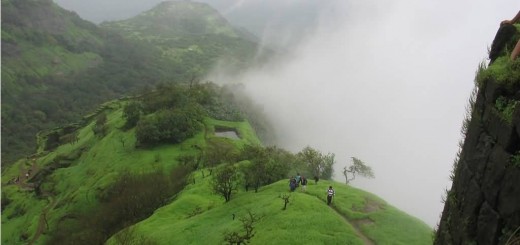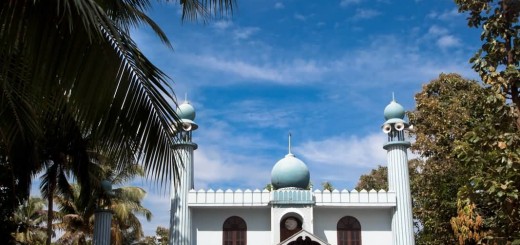Top 10 Richest Countries In The World
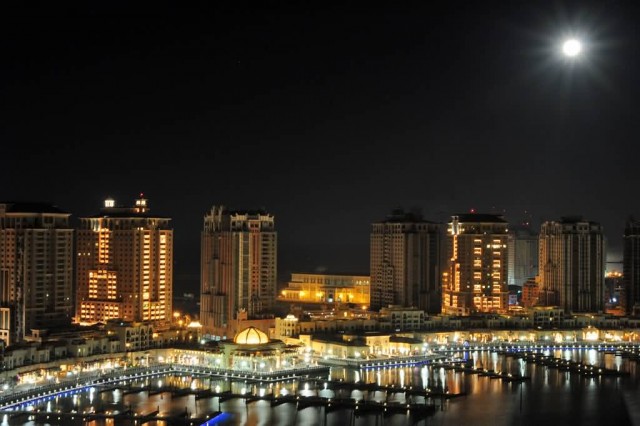
The Pearl At Night (Photo Credit: Steven Byles
/ CC BY-SA 2.0)
Qatar
Qatar, officially the State of Qatar, is a sovereign Arab country located in Southwest Asia, occupying the small Qatar Peninsula on the northeastern coast of the Arabian Peninsula. Its sole land border is with Saudi Arabia to the south, with the rest of its territory surrounded by the Persian Gulf. A strait in the Persian Gulf separates Qatar from the nearby island kingdom of Bahrain. In 2013, Qatar’s total population was 1.8 million: 278,000 Qatari citizens and 1.5 million expatriates.
Following Ottoman rule, Qatar became a British protectorate in the early 20th century until gaining independence in 1971. Qatar has been ruled by the Al Thani family since the mid-19th century. Qatar is an absolute monarchy and its head of state is Emir Sheikh Tamim bin Hamad Al Thani. After Saudi Arabia, Qatar is the most conservative society in the Gulf Cooperation Council as most Qataris adhere to the strict Wahhabi interpretation of Islam.
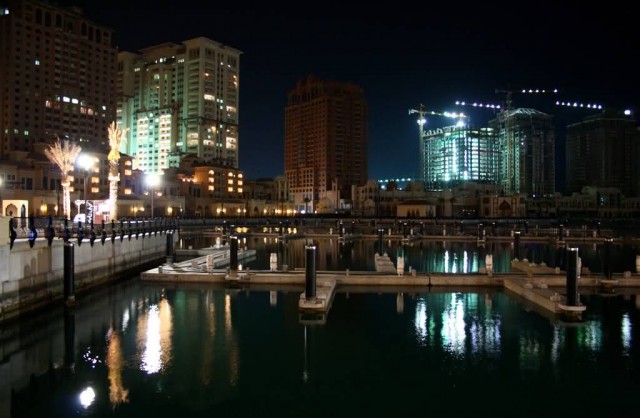
Qatar (Photo Credit: Enrico Strocchi / CC BY-SA 2.0)
Sharia law is the main source of Qatari legislation according to Qatar’s Constitution. Qatar is the world’s richest country per capita, with a high income, developed economy backed by the world’s third largest natural gas reserves and oil reserves in excess of 25 billion barrels. Qatar is an influential player in the Arab world, supporting several rebel groups during the Arab Spring both financially and through its globally expanding media group, Al Jazeera Media Network. Qatar will host the 2022 FIFA World Cup, becoming the first Arab country to do so. For its size, Qatar wields disproportionate influence in the world, and has been identified as a middle power.
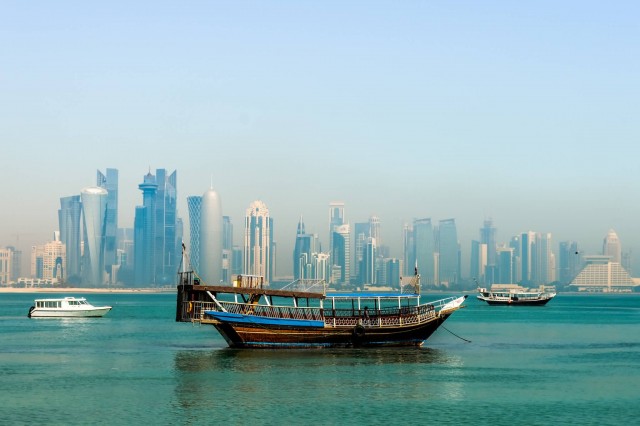
Doha Skyline (Photo Credit: Francisco Anzola / CC BY 2.0)
Luxembourg

Panorama Of Luxembourg (Photo Credit: FutUndBeidl/ Public Domain)
Luxembourg is a landlocked country in Western Europe. It is bordered by Belgium to the west and north, Germany to the east, and France to the south. It comprises two principal regions, the Oesling in the north as part of the Ardennes massif, and the Gutland in the south. Luxembourg had a population of 524,853 in October 2012 and has an area of 2,586 square kilometres, making it one of the smallest sovereign nations in Europe. As a representative democracy with a constitutional monarch, it is headed by a grand duke, Henri, Grand Duke of Luxembourg, and is the world’s only remaining grand duchy.
Luxembourg is a developed country, with an advanced economy and the world’s highest GDP per capita, according to the United Nations in 2014. Its central location has historically made it of great strategic importance to numerous powers, dating back to its founding as a Roman fortress, its hosting of a vital Frankish castle during the Early Middle Ages, and its role as a bastion for the Spanish Road between 16th and 17th centuries. Luxembourg is a founding member of the European Union, NATO, OECD, the United Nations, and Benelux, reflecting its political consensus in favour of economic, political, and military integration. The city of Luxembourg, which is the capital and largest city, is the seat of several institutions and agencies of the EU.
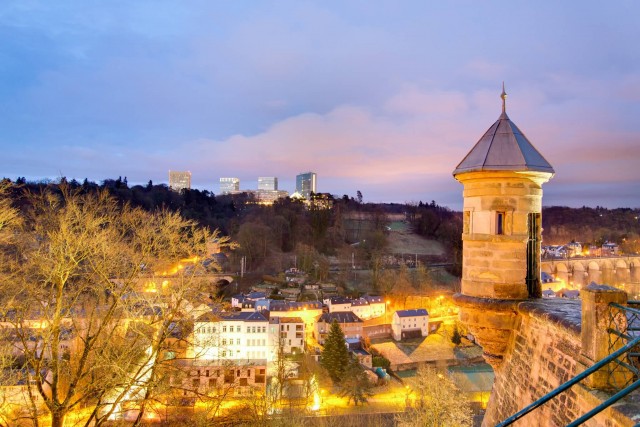
Luxembourg (Photo Credit: Tristan Schmurr / CC BY 2.0)
On 18 October 2012, Luxembourg was elected to a temporary seat on the United Nations Security Council for the first time in its history. The country served on the Security Council from 1 January 2013 until 31 December 2014. Reflecting its geographic position, Luxembourg’s culture is a fusion of Romanic and Germanic Europe, integrating customs of each. Accordingly, Luxembourg is a trilingual country: Luxembourgish, French and German are official languages. Although a secular state, Luxembourg is predominantly Roman Catholic.
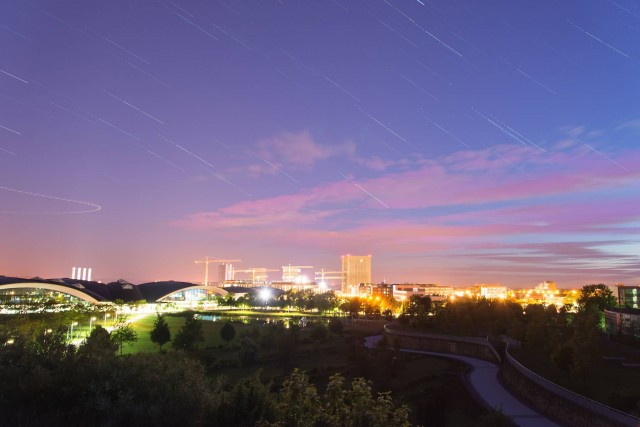
Kirchberg (Photo Credit: Tristan Schmurr / CC BY 2.0)
The United Arab Emirates
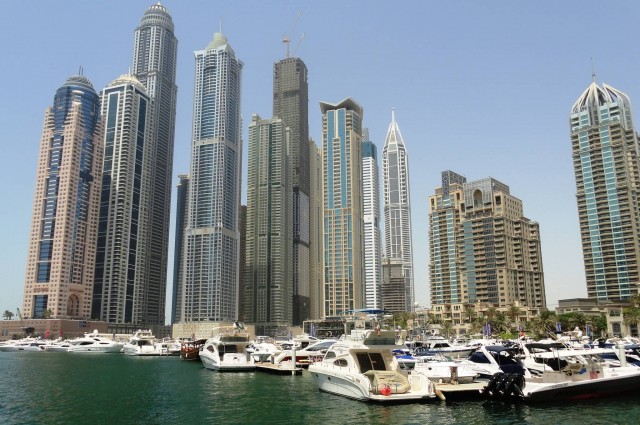
Dubai Marina (Photo Credit: Fabio Achilli / CC BY 2.0)
The United Arab Emirates, sometimes simply called the Emirates or the UAE is a country located in the southeast end of the Arabian Peninsula on the Persian Gulf, bordering Oman to the east and Saudi Arabia to the south, as well as sharing sea borders with Qatar and Iran. In 2013, the UAE’s total population was 9.2 million, of which 1.4 million are Emirati citizens and 7.8 million are expatriates. Established in December 1971, the country is a federation of seven emirates. The constituent emirates are Abu Dhabi, Ajman, Dubai, Fujairah, Ras al-Khaimah, Sharjah, and Umm al-Quwain.
Each emirate is governed by an absolute monarch who jointly form the Federal Supreme Council. One of the monarchs is selected as the President of the United Arab Emirates. Islam is the official religion of the UAE, and Arabic is the official language, although English is widely used. The UAE’s oil reserves are the seventh-largest in the world, while its natural gas reserves are the world’s seventeenth-largest. The late Sheikh Zayed, ruler of Abu Dhabi and the first President of the UAE, oversaw the development of the Emirates and steered oil revenues into healthcare, education and infrastructure.

Mosque (Photo Credit: Andrew Moore / CC BY-SA 2.0)
The UAE’s economy is the most diversified in the Gulf Cooperation Council, with its most populous city of Dubai emerging into a center for international trade and transport. Nevertheless, the country remains extremely reliant on petroleum and natural gas. The UAE has been criticized for its human rights record, including the role of Sharia law in its legal system. The UAE’s rising international profile has led some analysts to identify it as a regional and middle power.
Norway
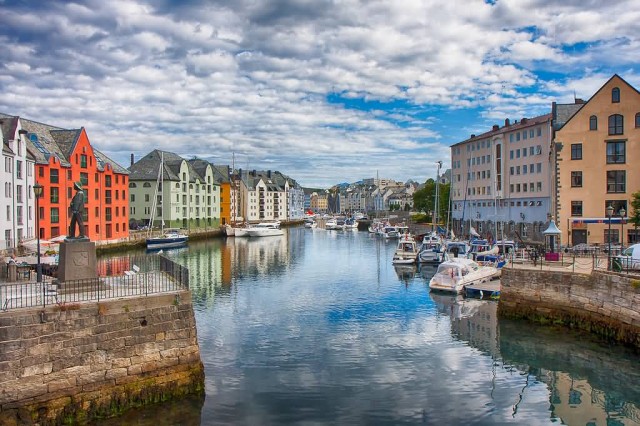
Colorful Norway (Photo Credit: Edward Dalmulder
/ CC BY 2.0)
Norway, officially the Kingdom of Norway, is a sovereign and unitary monarchy whose territory comprises the western portion of the Scandinavian Peninsula plus Jan Mayen and the Arctic archipelago of Svalbard. The Antarctic Peter I Island and the sub-Antarctic Bouvet Island are dependent territories and thus not considered part of the Kingdom. Norway also lays claim to a section of Antarctica known as Queen Maud Land. Until 1814, the Kingdom included the Faroe Islands, Greenland, and Iceland.
The country maintains a combination of market economy and a Nordic welfare model with universal health care and a comprehensive social security system. Norway has extensive reserves of petroleum, natural gas, minerals, lumber, seafood, fresh water, and hydropower. The petroleum industry accounts for around a quarter of the country’s gross domestic product. The country has the fourth-highest per capita income in the world on the World Bank and IMF lists, as well as ninth-highest on a more comprehensive CIA list. On a per-capita basis, it is the world’s largest producer of oil and natural gas outside the Middle East.
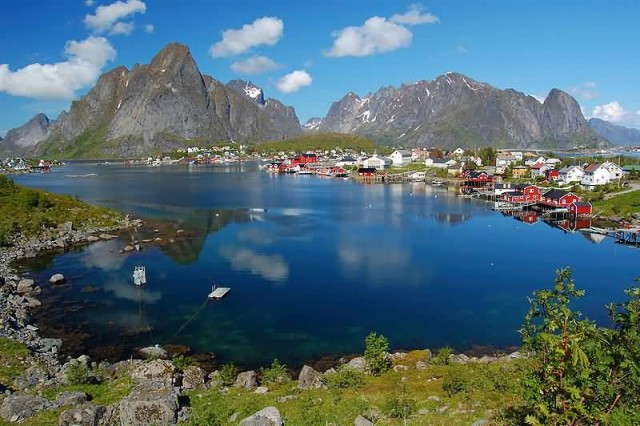
Norway Reine Lofoten (Photo Credit: melenama / CC BY-SA 2.0)
From 2001 to 2006, and then again from 2009 to 2014, Norway had the highest Human Development Index ranking in the world. Norway has also topped the Legatum Prosperity Index for the last five years. Norway is considered to be one of the most developed democracies and states of justice in the world. From 1814, c. 45% of men had the right to vote, whereas England had c. 20%, Sweden c. 5%, and Belgium c. 1.15% . Since 2010, Norway has been classified as the world’s most democratic country by the Democracy Index.
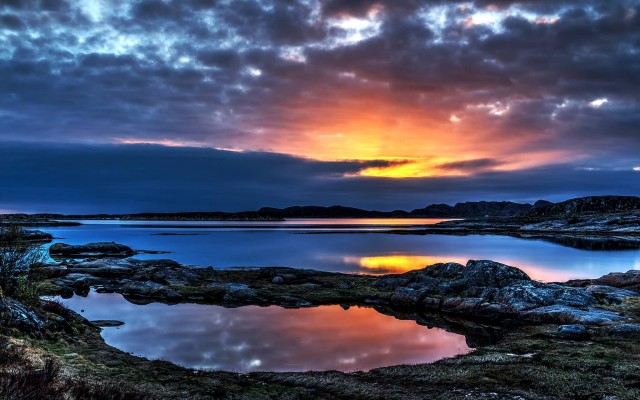
Beautiful Norway (Photo Credit: Nils Tamlag
/ CC BY 2.0)
Singapore
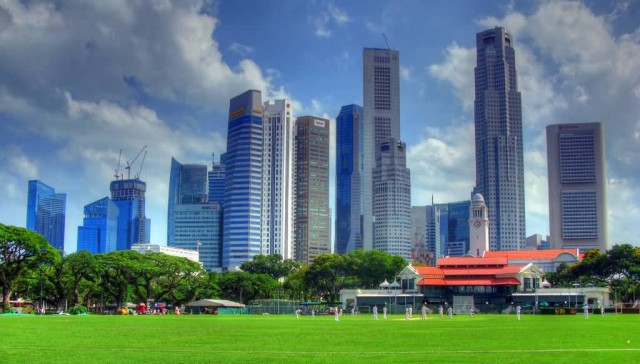
Padang Singapore (Photo Credit: Robert Lowe / CC BY 2.0)
Singapore, officially the Republic of Singapore, is a modern city-state and island country in Southeast Asia. It lies off the southern tip of the Malay Peninsula and is 137 kilometres north of the equator. The country’s territory consists of the diamond-shaped main island, commonly referred to as Singapore Island in English and Pulau Ujong in Malay, and more than 60 significantly smaller islets. Singapore is separated from Peninsular Malaysia by the Straits of Johor to the north, and from Indonesia’s Riau Islands by the Singapore Strait to the south. Singapore is highly urbanised. Land reclamation has been used to expand the country’s land area.
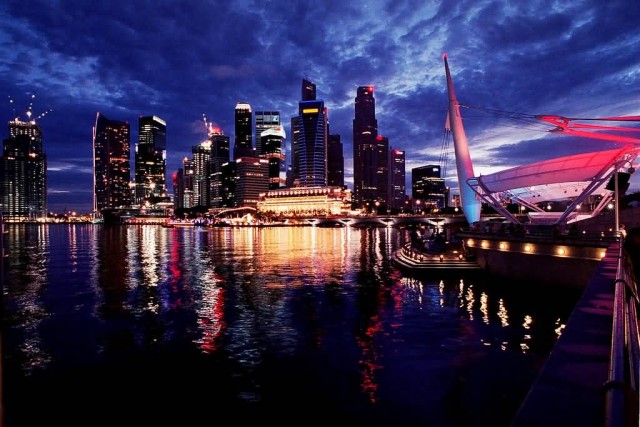
Singapore Skyline (Photo Credit: Nicolas Lannuzel / CC BY-SA 2.0)
Singapore is one of the world’s major commercial hubs, the fourth-largest financial centre and one of the top two busiest container ports in the world for at least the past ten years. Its globalised and diversified economy depends heavily on trade, especially manufacturing, which accounted for around 30 percent of Singapore’s GDP in 2013. Singapore places highly in international rankings with regard to standard of living, education, healthcare, and economic competitiveness. Singapore has one of the highest per capita income and one of the longest overall life expectancy in the world. The country is one of nine countries in the world with top AAA rating from all credit rating agencies.
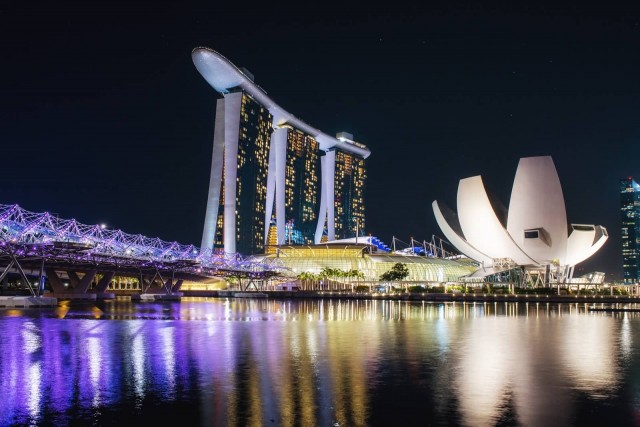
Singapore Arina Bay (Photo Credit: Leonid Yaitskiy / CC BY-SA 2.0)
The United States
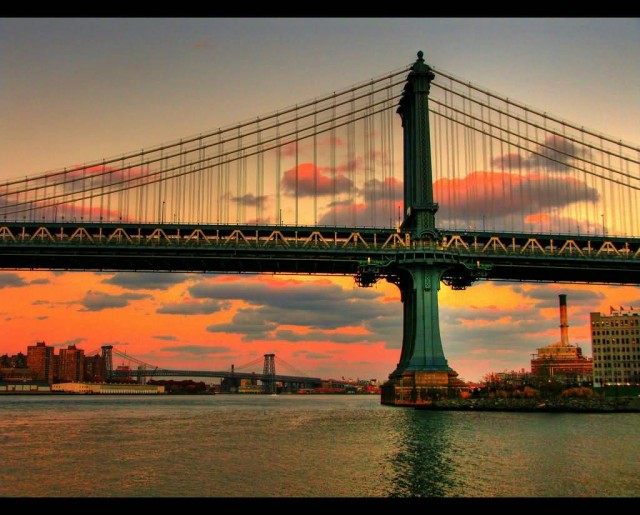
Manhattan Bridge (Photo Credit: Scott Hudson / CC BY 2.0)
The United States of America, commonly referred to as the United States or America, is a federal republic consisting of 50 states and a federal district. The 48 contiguous states and Washington, D.C., are in central North America between Canada and Mexico. The state of Alaska is located in the northwestern part of North America and the state of Hawaii is an archipelago in the mid-Pacific. The country also has five populated and numerous unpopulated territories in the Pacific and the Caribbean.
At 3.8 million square miles and with over 320 million people, the United States is the world’s fourth-largest country by total area and third most populous. It is one of the world’s most ethnically diverse and multicultural nations, the product of large-scale immigration from many countries. The geography and climate of the United States are also extremely diverse, and the country is home to a wide variety of wildlife.
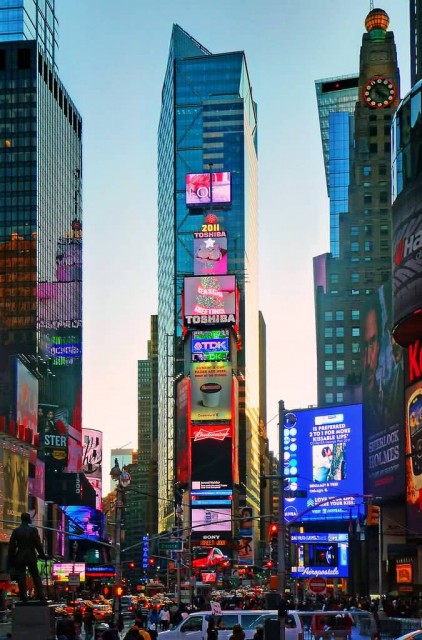
Times Square Dusk (Photo Credit: George Rex / CC BY-SA 2.0)
The United States is a developed country and has the world’s largest economy by nominal and real GDP, benefiting from an abundance of natural resources and high worker productivity. While the U.S. economy is considered post-industrial, the country continues to be one of the world’s largest manufacturers. Accounting for 34% of global military spending and 23% of world GDP, it is the world’s foremost economic and military power, a prominent political and cultural force, and a leader in scientific research and technological innovations.
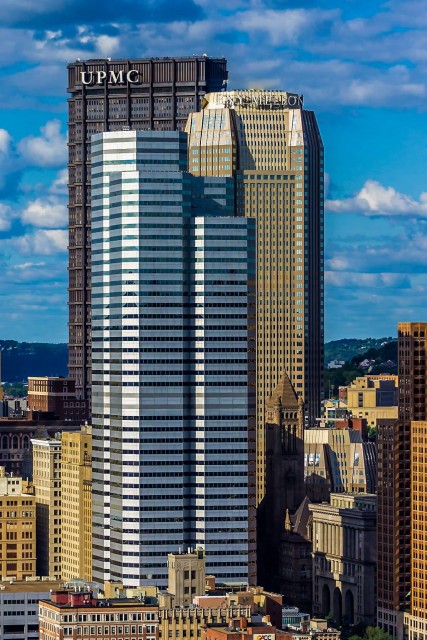
Stand Taller (Photo Credit: Always Shooting / CC BY 2.0)
Switzerland
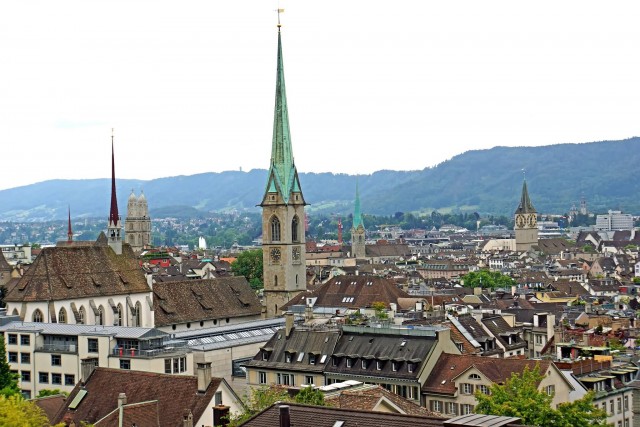
Switzerland Old Town (Photo Credit: Dennis Jarvis
/ CC BY-SA 2.0)
Switzerland, officially the Swiss Confederation, is a federal parliamentary republic consisting of 26 cantons, with Bern as the seat of the federal authorities, the so-called Bundesstadt. The country is situated in Western and Central Europe, where it is bordered by Italy to the south, France to the west, Germany to the north, and Austria and Liechtenstein to the east.
Switzerland is a landlocked country geographically divided between the Alps, the Swiss Plateau and the Jura, spanning an area of 41,285 km2. While the Alps occupy the greater part of the territory, the Swiss population of approximately 8 million people is concentrated mostly on the Plateau, where the largest cities are to be found; among them are the two global and economic centres of Zürich and Geneva. Switzerland ranks high in several metrics of national performance, including government transparency, civil liberties, economic competitiveness, and human development.
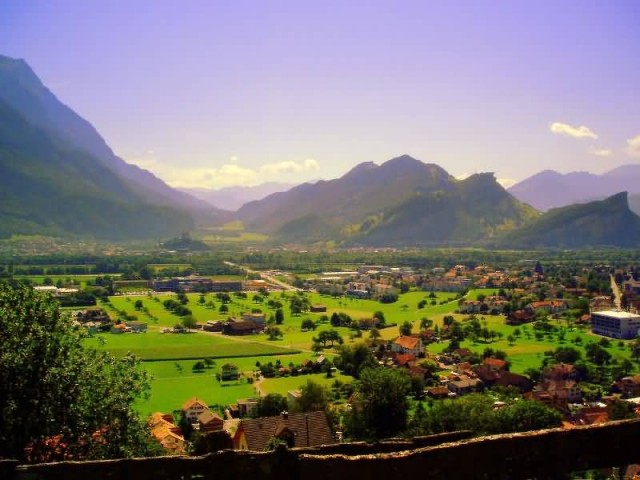
Switzerland (Photo Credit: Francisco Antunes / CC BY 2.0)
In April 2015, Switzerland was found to be the ‘happiest’ country in the world in the third annual World Happiness Report. It has the highest nominal wealth per adult in the world according to Credit Suisse and the eighth-highest per capita gross domestic product on the IMF list. Zürich and Geneva each have been ranked among the top cities with the highest quality of life in the world.
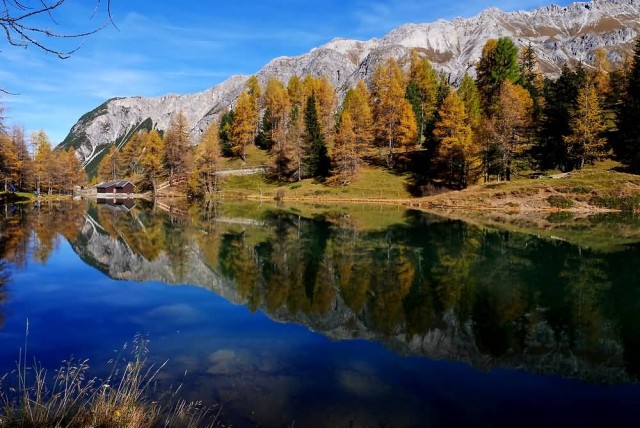
Beautiful Switzerland (Photo Credit: Transformer18 / CC BY 2.0)
Netherlands
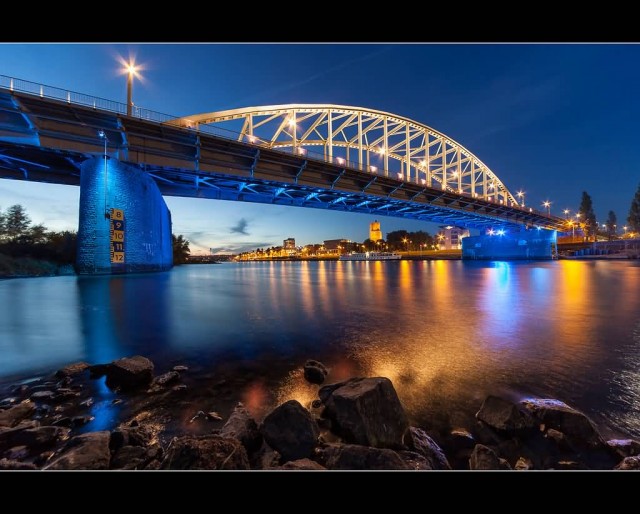
Netherlands (Photo Credit: Maarten Takens / CC BY-SA 2.0)
The Netherlands is the main constituent country of the Kingdom of the Netherlands. It is a small, densely populated country, located in Western Europe and with three island territories in the Caribbean. The European part of the Netherlands borders Germany to the east, Belgium to the south, and the North Sea to the northwest, sharing maritime borders with Belgium, the United Kingdom and Germany. The largest and most important cities in the Netherlands are Amsterdam, The Hague and Rotterdam.
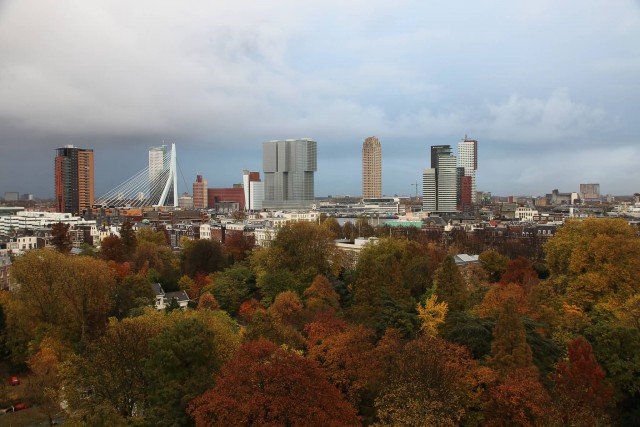
Rotterdam (Photo Credit: Rick Ligthelm / CC BY 2.0)
Amsterdam is the country’s capital, while The Hague holds the Dutch seat of government and parliament. The port of Rotterdam is the largest port in Europe – as large as the next three largest combined. The Netherlands has a market-based mixed economy, ranking 17th of 177 countries according to the Index of Economic Freedom. It had the thirteenth-highest per capita income in the world in 2013 according to the International Monetary Fund. In 2013, the United Nations World Happiness Report ranked the Netherlands as the fourth happiest country in the world, reflecting its high quality of life.
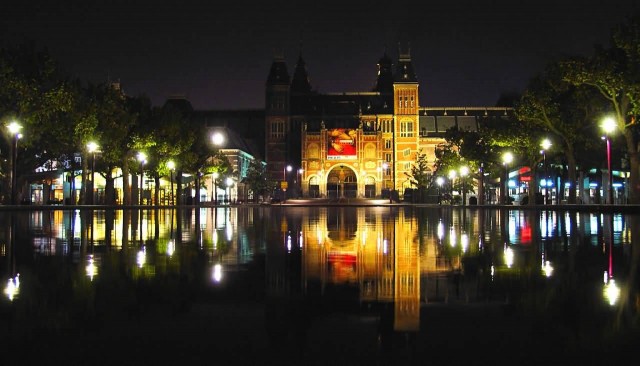
Amsterdam (Photo Credit: josef.stuefer
/ CC BY 2.0)
Ireland
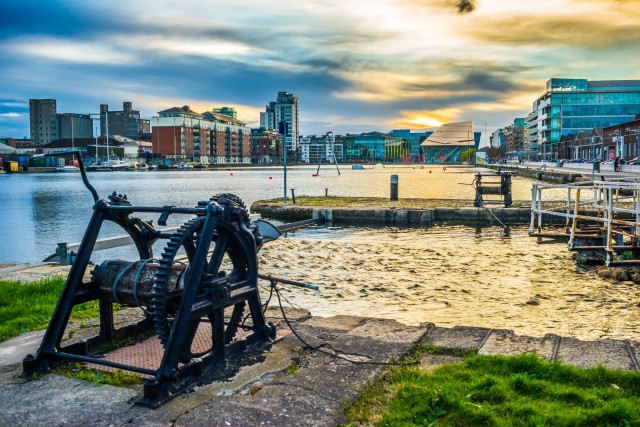
Sunset In Grand Canal (Photo Credit: Giuseppe Milo / CC BY 2.0)
Ireland is an island in the North Atlantic separated from Great Britain to its east by the North Channel, the Irish Sea, and St George’s Channel. It is the second-largest island of the British Isles after Great Britain, the third-largest in Europe and the twentieth-largest on Earth.
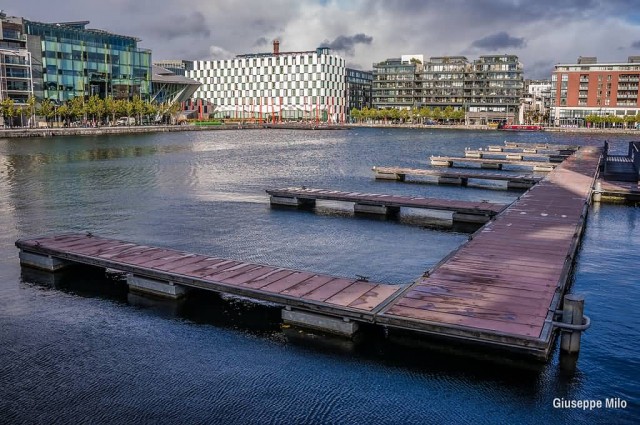
Grand Canal Dublin Ireland (Photo Credit: Giuseppe Milo / CC BY 2.0)
Irish culture has had a significant influence on other cultures, especially in the fields of literature and, to a lesser degree, science and education. Alongside mainstream Western culture, a strong indigenous culture exists, as expressed for example through Gaelic games, Irish music, and the Irish language. The culture of the island has also many features shared with Great Britain, including the English language, and sports such as association football, rugby, horse racing, and golf.
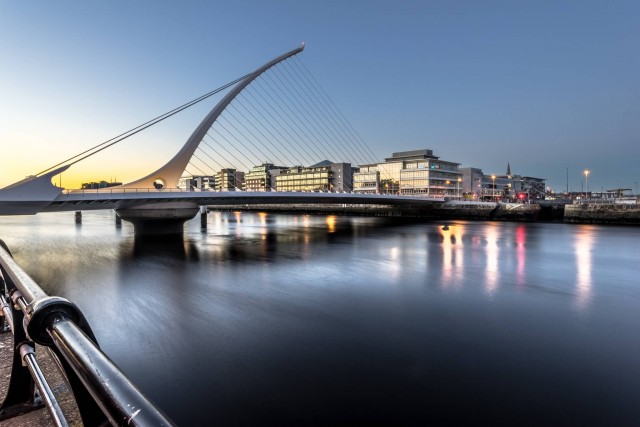
Samuel Beckett Bridge At Sunset (Photo Credit: Giuseppe Milo / CC BY 2.0)
Austria
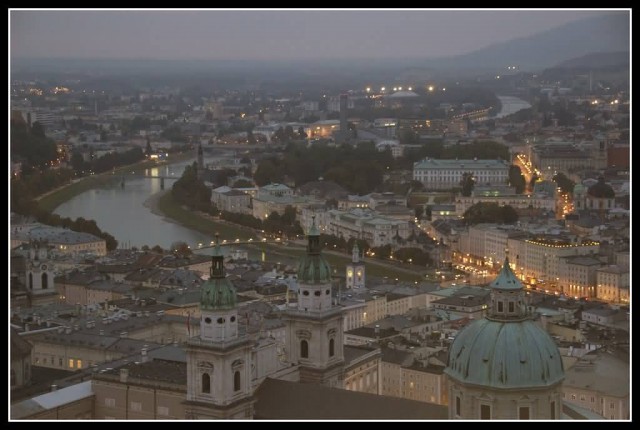
Austria (Photo Credit: Nagesh Kamath / CC BY-SA 2.0)
Austria, officially the Republic of Austria, is a federal republic and a landlocked country of over 8.5 million people in Central Europe. It is bordered by the Czech Republic and Germany to the north, Hungary and Slovakia to the east, Slovenia and Italy to the south, and Switzerland and Liechtenstein to the west. The territory of Austria covers 83,879 square kilometres and has an alpine climate. Austria’s terrain is highly mountainous, lying within the Alps; only 32% of the country is below 500 metres, and its highest point is 3,798 metres. The majority of the population speak local Bavarian dialects of German as their native language, and Austrian German in its standard form is the country’s official language. Other local official languages are Hungarian, Burgenland Croatian, and Slovene.

Austria Nature (Photo Credit: Alex Holzknecht / CC BY 2.0)
Today, Austria is a parliamentary representative democracy comprising nine federal states. The capital and largest city, with a population exceeding 1.7 million, is Vienna. Austria is one of the richest countries in the world, with a nominal per capita GDP of $52,216. The country has developed a high standard of living and in 2014 was ranked 21st in the world for its Human Development Index. Austria has been a member of the United Nations since 1955, joined the European Union in 1995, and is a founder of the OECD. Austria also signed the Schengen Agreement in 1995, and adopted the European currency, the Euro, in 1999.

Kreischberg (Photo Credit: Jan Fidler / CC BY 2.0)

